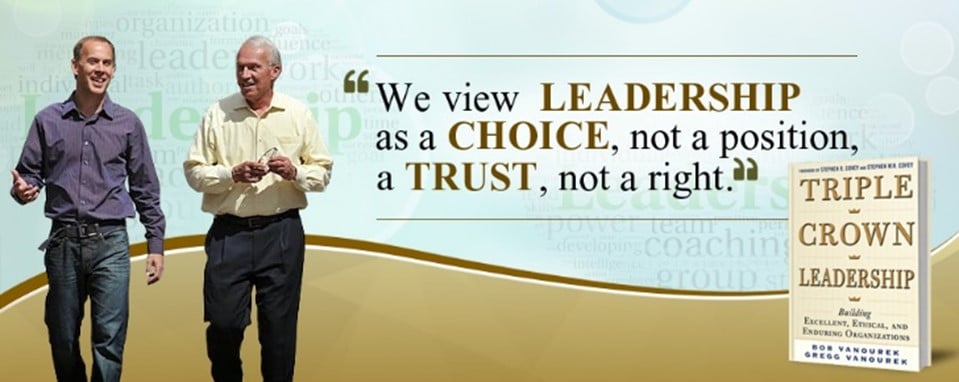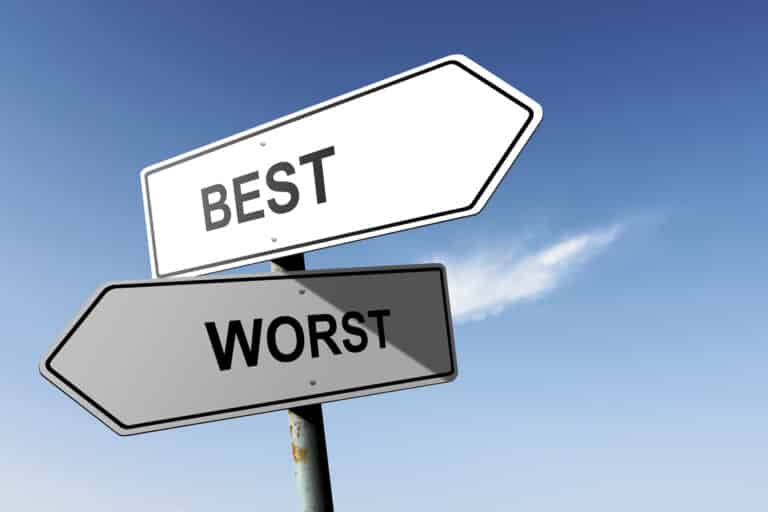Article Summary:
Here we describe the worst bosses and the best bosses—and we suggest what can you do to become more like a best boss.
“Bosses shape how people spend their days and whether they experience joy or despair,
perform well or badly, or are healthy or sick. Unfortunately, there are hordes of mediocre
and downright rotten bosses out there, and big gaps between the best and the worst.”
-Robert I. Sutton, Stanford professor
Many of us have had bad bosses. Unfortunately, it’s all too common. What makes them bad?
Worst Bosses
The worst bosses are often caught up in their own ego. Many are insecure and overcompensate with dysfunctional behavior. The worst bosses often dodge responsibility. They can be autocratic and dictatorial, gleefully exercising their power over others, micromanaging, and cutting ethical corners.
The worst bosses treat their workers disrespectfully, berating them publicly, keeping them in dark about their performance, and withholding important information. They instill fear and treat people like disposable machines.
The worst bosses make people feel inadequate and guilty, favoring some and playing politics. They push people harder and harder. They take credit belonging to others. Their self-importance can lead to arrogance, impatience, and cringeworthy displays of temper, rudeness, and bullying.
The worst bosses have low empathy and emotional intelligence (EQ). They tolerate toxic workers, especially if they’re high performers, because all they care about is their position and their bonus. They control people, make impulsive decisions, or waffle in indecisiveness.
The worst bosses enjoy punishing people for failures and have goals or priorities that are in conflict with each other. They think they have all the answers, lack clarity in their directions, and are distant and aloof. The worst bosses are ball hogs or divas. They see relationships as transactional.
These bad bosses create a toxic work environment. As a result, many good people leave. Or they keep their heads down and do the minimum amount necessary to keep their jobs. The worst bosses are miserable to work for.
“People don’t leave bad jobs; they leave bad bosses.”
-unknown

Alignment Scorecard
When organizations aren’t aligned, it can reduce performance dramatically and cause frustration and dysfunction. With this Alignment Scorecard, you can assess your organization’s level of alignment and make plans for improving it.
Best Bosses
By contrast, the best bosses have excellent character and demonstrate integrity. They have empathy and high EQ. They are values-based and authentic. They offer continuous, constructive feedback.
The best bosses tell people what needs to be done and let them figure out the best way to do it. They respect and care for workers. They’re open with all relevant information, speak persuasively, praise their staff publicly and often, celebrate wins, and reward people appropriately. As a result, people feel valued and admired. Their confidence grows.
The best bosses are kind but demanding. They speak much more often about “we” and “us” than “I” and “me.” The best bosses develop their people and unleash other leaders. They’re humble, willing to show their vulnerabilities, and thoughtful. They know when to lead and when to follow. They listen actively, ask questions, and show patience. They build trust because they believe in the inherent capabilities of people.
The best bosses flex between “steel and velvet”—the hard and soft edges of leadership—depending on the situation and the people involved. They have a strong will and bridge factions. They coach and guide people.
The best bosses are good team players and skilled communicators who simplify and synthesize. They have the courage to take the hard road, building credibility. They lead by example and see failures as a learning experience.
The best bosses are hungry for feedback because they’re continually learning. They seek heart in colleagues, not just head skills. While the best bosses acknowledge reality, they also inspire their colleagues with an optimistic vision of success.
The best bosses build a healthy culture with committed people who trust one another and become a high-performance team. They’re a joy to work for.

Personal Values Exercise
Complete this exercise to identify your personal values. It will help you develop self-awareness, including clarity about what’s most important to you in life and work, and serve as a safe harbor for you to return to when things are tough.
Becoming a Best Boss
Being a boss or leader is to be on a continuum of these characteristics. Few people hit all the elements of being a worst or best boss. The issue is where you fall on the continuum.
How can you become a “best boss”? A few things:
First, revisit the descriptions above and note the areas where you struggle with the worst boss behaviors as well as what you’re missing with the best boss behaviors.
Second, get feedback on your leadership from colleagues. This is essential, because we all have blind spots. Share this article with your team and ask for a few areas for improvement.
Third, take our Leadership Derailers Assessment for a more formal tool that can help you identify what’s inhibiting your leadership effectiveness. (You can also share those results with colleagues and ask for their feedback.)

Leadership Derailers Assessment
Take this assessment to identify what’s inhibiting your leadership effectiveness. It will help you develop self-awareness and identify ways to improve your leadership.
(If you work for a bad boss, see our article, “What to Do If You Work for a Toxic Boss?”)
We wish you well with improving your leadership, and please reach out and let us know if we can help.
-Bob and Gregg Vanourek
Co-authors, Triple Crown Leadership: Building Excellent, Ethical, and Enduring Organizations

Reflection Questions
- Where do you fall on the continuum between a worst and best boss?
- What will you work on to move closer to the best boss category?
- What’s stopping you from starting that work now?
Tools for You
- Leadership Derailers Assessment to help you identify what’s inhibiting your leadership effectiveness
- Personal Values Exercise to help you determine and clarify what’s most important to you
- Alignment Scorecard to help you assess your organization’s level of alignment

Leadership Derailers Assessment
Take this assessment to identify what’s inhibiting your leadership effectiveness. It will help you develop self-awareness and identify ways to improve your leadership.
Related Articles
- “The Telltale Signs of a Bad Boss“
- “Why All the Bad Bosses—And What to Do About It”
- “What to Do If You Work for a Toxic Boss?”
- “What Are Your Leadership Derailers?”
- “Leading from Below”
- “The Problem of Bad Leaders–And Why People Keep Following Them”
- “How to Become a Better Servant Leader”
Postscript: Quotations
- “There are no bad teams, only bad leaders.” -Leif Babin, former U.S. Navy Seal officer and best-selling author
- “According to many sources, a bad boss is also the number one reason why employees quit their job.” -Susan M. Heathfield, management consultant, trainer, and author
- “The bad leaders are the ones that push hard so they can gain, who browbeat us so that they can receive the benefit of our hard work, not so we can enjoy the success.” -Simon Sinek, author
- “A boss says, ‘Go and make sure you do it.’ A leader says, ‘Let’s go and make it happen.’ Bosses control people; leaders involve them.” -Israelmore Ayivor, author
- “A leader’s job is to develop committed followers. Bad leaders destroy their followers’ sense of commitment.” -Dean Smith, American basketball coach
- “The challenge of leadership is to be strong, but not rude; be kind, but not weak; be bold, but not bully; be thoughtful, but not lazy; be humble, but not timid; be proud, but not arrogant….” -Jim Rohn, entrepreneur
- “Having a bad boss isn’t your fault. Staying with one is.” -Nora Denzel, high-tech executive and board member
- “Bad boss? Fire him/her. When you’re interviewing for a job, your job is to interview them. You are an equal.” -Richie Norton, author
- “Don’t be afraid to leave toxic partners, fake friends, and bad bosses. Never settle for less than you deserve.” -Kirsten Hill, Canadian Ambassador to the U.S.
- “You have brains in your head. You have feet in your shoes. You can steer yourself, any direction you choose.” -Dr. Seuss

Triple Crown Leadership Newsletter
Join our community. Sign up now and get our monthly inspirations (new articles, announcements, opportunities, resources, and more). Welcome!
+++++++++++++++++++++++
Gregg Vanourek and Bob Vanourek are leadership practitioners, teachers, and award-winning authors (and son and father). They are co-authors of Triple Crown Leadership: Building Excellent, Ethical, and Enduring Organizations, a winner of the International Book Awards. Check out their Leadership Derailers Assessment or get their monthly newsletter. If you found value in this, please forward it to a friend. Every little bit helps!


